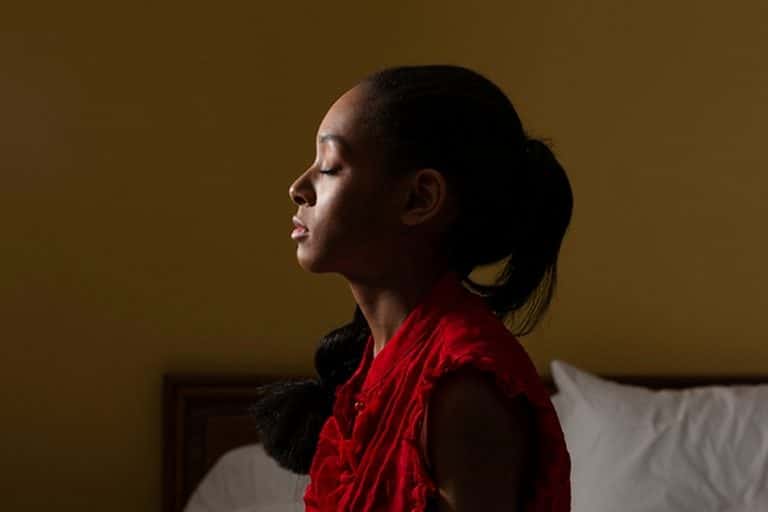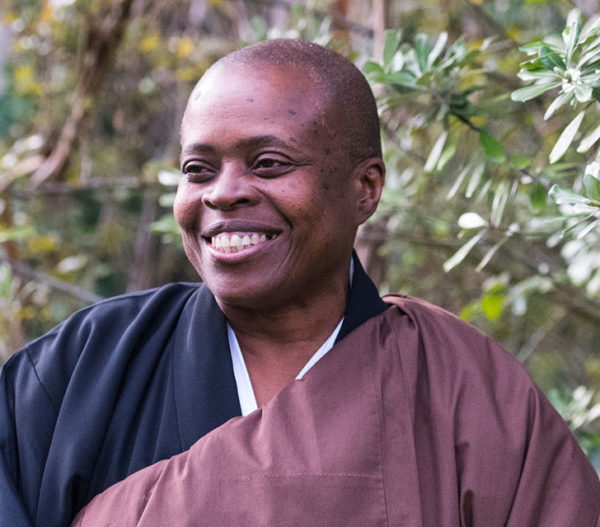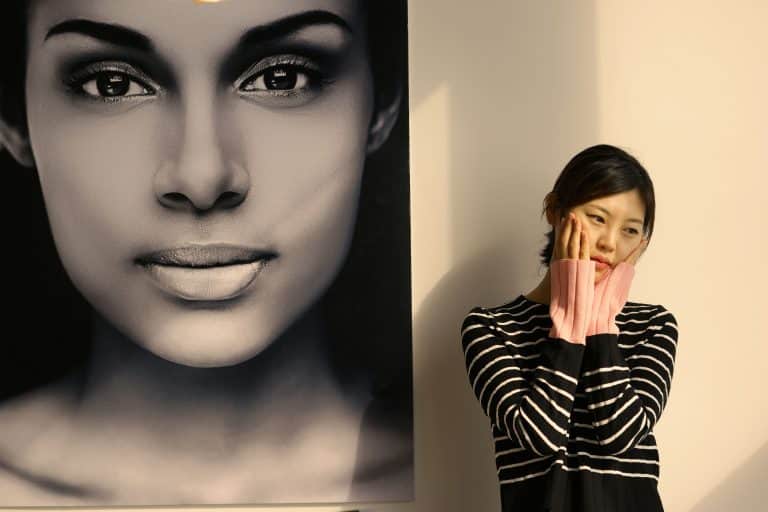
Image by Zave Smith/Getty Images, © All Rights Reserved.
Of What Had I Ever Been Afraid?
My father was already sixty years old when I was born. So even at a young age, I was aware of death looming over him. Riding around town in his Buick was one of our father-daughter activities. One day, I saw my father go out to the car. I waited, expecting him to call me out to take a ride with him. The minutes ticked by but he had not called me. I decided to go out and check on this ride I was expecting. I peeked into the window of the car he cherished. He was slumped over, unmoving on the seat. Was he dead?
I hesitated for a moment, before knocking on the window of the car. Slowly, Dad opened his eyes and sat up from his nap. He smiled. I smiled back. I was glad to have him back, even though I hadn’t really lost him. I didn’t want to have to tell Mom that he had died. Always aware of his age compared to the dads of other kids, I knew that one day someone would have to make that announcement. I secretly prayed that it wouldn’t be me.
“Great is the matter of birth and death, quickly passing, passing, gone. Awake, awake, each one, awake! Don’t waste this life.”
This is the message written on the han, a wooden instrument used in Japanese Soto Zen centers to call practitioners to the meditation hall. So when I hear the han sounding out, I don’t hesitate; I don’t waste time. I stop my mental and physical activity, listen, then walk toward the sound of the piece of wood being tapped with a wooden mallet, sounding out, “Wake up! Life is passing, right now! Right now, you are passing!”
All my life I have been working to hold on to this passing body. We are all ever vigilant with regard to protecting ourselves from death. We will all, without a doubt, lose our bodies and minds, even if we accomplish everything we want in life, even if we achieve longevity with health schemes or great refinement through religious and spiritual practices. It doesn’t matter if we become enlightened or not, we will still have to experience death. Because we are born, we will also die.
Death can be both terrifying and fascinating. My own fear and curiosity at a young age became so great that I developed an intense interest in living life from a place of innermost truth. Even my ordination as a Zen priest later in life, I feel, may have come out of my childhood concerns about living and dying. It had everything to do with wanting to live this seemingly once-in-a-lifetime chance fully from the heart, from the earth.
What does death have to do with race, sexuality, and gender? It seems fitting here to return to the wisdom of poet, essayist, and philosopher Audre Lorde:
“In becoming forcibly and essentially aware of my mortality, and of what I wished and wanted for my life, however short it might be, priorities and omissions became strongly etched in a merciless light, and what I most regretted were my silences. Of what had I ever been afraid?”
Lorde was dying from cancer when she wrote these words. I cried when I first read them, and I would cry every time I read them for years thereafter. I wasn’t crying about my mortality. Lorde’s piece is not about death as much as it is about regretting the silences: neglecting one’s life and prioritizing the lives of others, devaluing one’s own life experience out of fear. She’s talking about self-annihilation. I knew that fear. I feared being who I was. I was afraid of hurting my family, afraid of being hated and mistreated for my entire life for loving a woman.
So when I read Lorde’s testimony, over and over again, I cried about my own silence. I regretted the years of hiding, regretted not sharing that my life had been threatened in the street when it was presumed that I was a lesbian, regretted hiding that someone had spit in my face before. I regretted not having shared the wonderful times with the beautiful queer people in my life. Mostly, I regretted being afraid. Eventually through Zen practice and indigenous ritual, I came to respect and love my own life. When I found such respect and love my family and friends mirrored it. I am fortunate.
Like Lorde, I don’t write to receive pity or an apology for the hurts imposed upon me. I write to speak up, to acknowledge the devastation wrought among us when a human life is omitted in the midst of humanity and treated as less than a treasure amid life in general.
“I regret not having loved enough.”
This is a common line I’ve heard reported as wisdom typically delivered by a person on the verge of death. I await the moment when the deep regret about remaining silent about issues of race, sexuality, and gender rises in our hearts, and we understand what that means in terms of the systematic withholding of love from those who are different from us, then we truly come to regret not having loved enough. We will learn what it is to live with the real regret of not having attended to systemic oppression. It is this very system of silencing, ignoring, and annihilating the presence of other living beings that has wrought much of the suffering in this world. We will not have loved enough when this world comes to an end.
Death, whether our own or others, can be a powerful gateway to complete tenderness. The confrontation with the impermanence of all things is perhaps the widest gate to liberation from suffering. Facing death or dealing with death, our sight becomes clear. “Priorities and omissions are etched in a merciless light,” as Lorde wrote. Given the sheer quantity of death around us, why not use this merciless light to better see who we are?
When I was thirty-nine years old it was I who received the call that my father had died in the hospital. I had long known with my childhood intuition that it would be I who would tell my mother. That Sunday I drove together with my sisters to the church where our family had worshipped with migrants from Texas and Louisiana for more than forty years. Mom was coming down the long cascading steps when I ran to meet her. She knew by the look on my face that Dad had died. Ten years later my mother would be diagnosed with a brain tumor and take the great leap into death herself. When my parents died I came to learn that despite the fact that everything appeared the same the day after as it did the day before, death, in fact, changed everything and everyone. Death widens the river’s mouth, loosens our relentless grasp on life, and delivers us closer to the ultimate silence on this earth.
I came to see that the great matter of death is not great because it’s scary but because it is profound in its immense capacity to arouse a loving nature within us. It brings our attention to birth as an entrance into belonging. No one should be denied this belonging, regardless of their race, sexuality, or gender. Proximity to death provides an experience by which we can see our profound lives, not as defined by vocations and careers, but as an experience of being awake.
Death seals a formidable interrelationship between all beings and all things. All things arise and cease; all beings are born and die. In death we come to know the spirit within us all. When death arrives it reminds us, like nothing else in life, that we are completely interdependent with each other. When a life is lost we lose. When, in the wake of catastrophes caused by war or weather, many are found dead in the aftermath, we see ourselves in the dead. We tremble as we connect with each other in the face of such loss.
Perhaps we can be less afraid of our differences when we realize that this merciless light of death shines upon us while we live. Perhaps we can awaken to the flow of “the river of silence” (as prophet Kahlil Gibran called death), as it courses through the vast continuum of life. This doesn’t mean that we won’t tremble in the presence of our fears of one another, but that we will be more present with our trembling, more awake to the truth that underlies our fears. Such was the case when I first discovered, as a child, that death is a promise that can never be broken.
We don’t have to wait for death to approach to liberate ourselves from hatred. We can begin by asking ourselves, have I loved enough — within myself, within my house, beyond my doors, and into the world? Have I expressed the loving being that I am? Have I borne this love even when someone’s heart is closed to it? I am not advocating love or the way of tenderness as an answer to all the ills of the world. Then again it is just that simple: to be love. We need such love to continue to confront the truth of the prolonged mistreatment that oppression brings to the world.
Race, sexuality, and gender are said to be illusions, without reality, and yet we feel their presence and hear their footsteps like invisible monsters coming at us. But there are no monsters. When we begin to treat race, sexuality, and gender — these locations of life — as much needed paths to awakening, we no longer will fear them as monsters. We are more willing to explore and engage our various embodiments when we understand them to be paths to transformation. If we do not anchor our inquiry into life within the undeniable, physical reality in which we live, spiritual awakening will remain far too abstract.
The body shapes our spiritual quest. In this book I have asked how a dark body could be transformed from a basis for oppression into a basis for spiritual awakening. What would be our quest were we given a common ground of trust and a common path of our bodies? Stillness is important. I speak of a stillness that has nothing to do with Buddha or Buddhism. I speak simply of just being still, of finding that place where our only act is breathing. In this state of stillness, we do not seek answers for our active minds but allow one breath to be the total experience of life. Dogen Zenji once said that a single moment is not a segment of life but is a whole life. A moment is not now; a moment is simply in a state of being itself. We, too, can be in a state of being ourselves and not worry about now. We can be wholly ourselves as ourselves while engaging the breath. As a result of this breath, as a result of the meditation that arises from it, our motivations become purified of our wounds, our expectations, our stories, and our distorted perceptions of others. Our actions begin to bubble up naturally from the well of multiplicity in oneness and interrelationship. Our actions become the spirit of social justice, in which we are all recognized as the varied expressions of nature.
When I first read the simile of the lotus growing in muddy water, I saw the mud as a problem. The simile says, just like a lotus flower that grows out of the mud and blossoms above the surface of the muddy water, we too can rise above the suffering of our lives. When I first heard this, I was not rising from the mud. I sensed myself sinking into the mud; it gathered around my ankles and began consuming me, creeping up above my waist, chest, neck, and then face, covering me until all that could be seen of me was the crown of my head. I was a sinking lotus flower.
As I returned to this simile of the lotus in the muddy water over the years I came to see it differently — I came to see the lotus as interrelated with the mud. I learned that the mud nurtures the lotus flower. The mud was not burying me; it was feeding me until I was strong enough to push through to the surface. Although systemic oppression does not feed us (quite the contrary), we need not be smothered by it. We can use it to awaken. Even while we are in the midst of it all, we can still cultivate a tender liberation. There are many people who, because there is work to do, have risen up and have not remained silent in the face of our suffering.
In her classic book, When Things Fall Apart, Pema Chödrön says that everyone and everything is always falling apart. At times we are benefitted by personally and collectively “holding things together.” Can falling apart be a liberating force in our lives? As a society we may not be ready for the way of tenderness, yet we are falling apart. We are falling into the ready-made abyss of life.
Once I was told that our good deeds at this time may not be for our own benefit and that what we are contributing today is perhaps for those who will live in the year 3000 or 4000, should humans survive that long as a species. Perhaps the way of tenderness, as a path of spiritual awakening acknowledging race, sexuality, and gender, seems futuristic. Perhaps nourishing our lost kinships seems impossible. What would we have to give up to experience such today? As Audre Lorde says, “Our silences.”
This chapter is excerpted from The Way of Tenderness: Awakening through Race, Sexuality, and Gender. Copyright © 2015 by Earthlyn M. Manuel. Published by Wisdom Publications. Her book Sanctuary: A Meditation on Home, Homelessness, and Belonging is forthcoming from Wisdom Publications.


Share your reflection